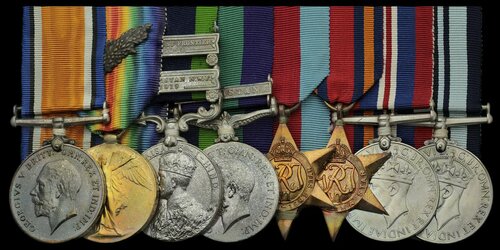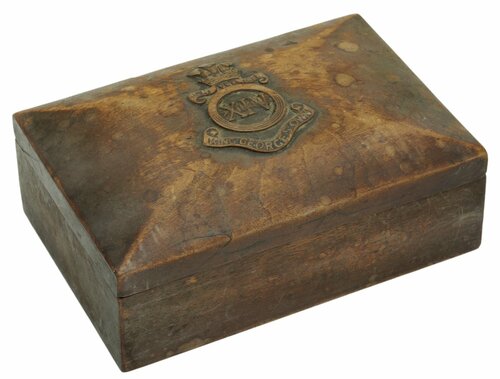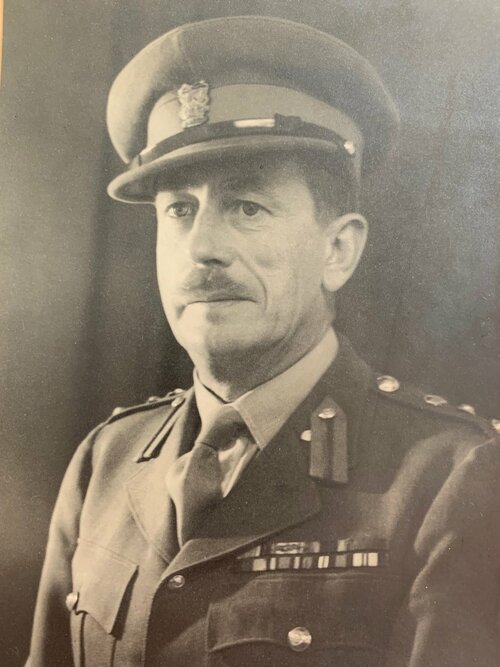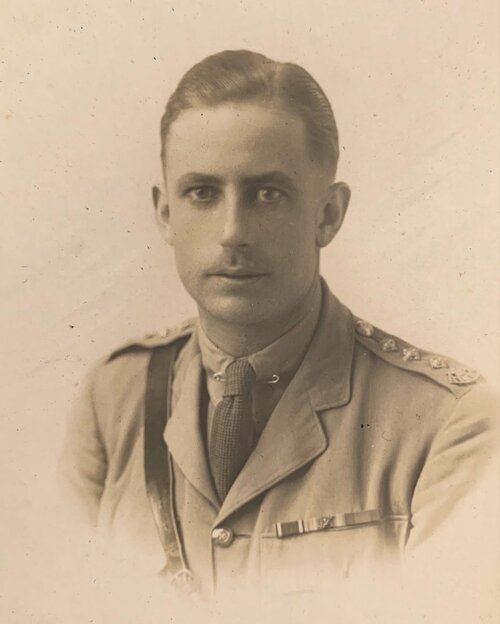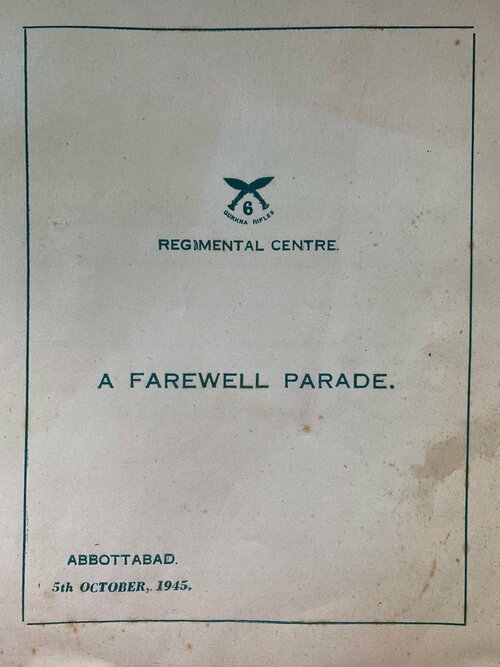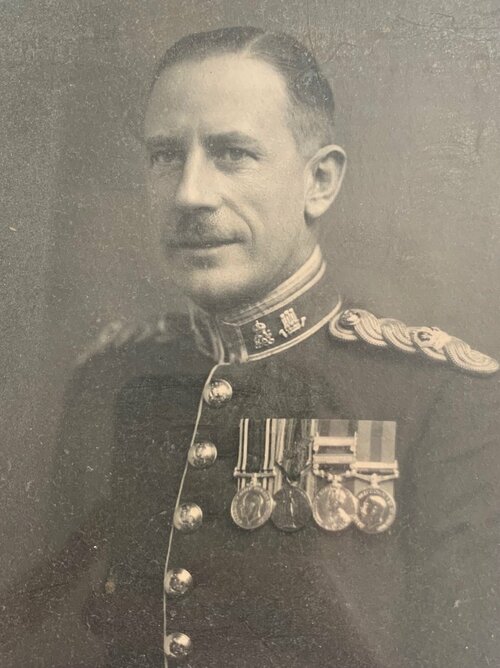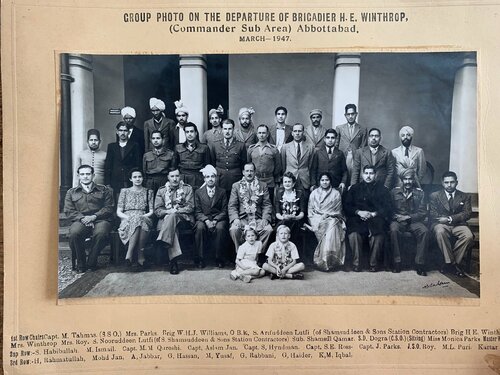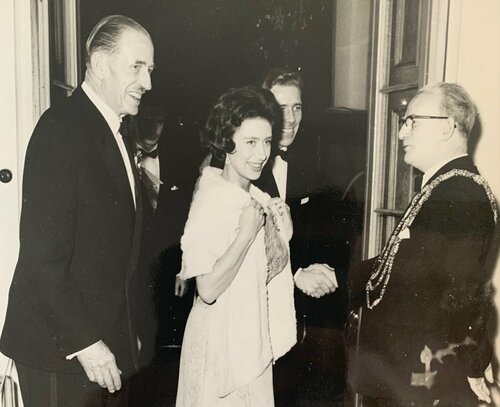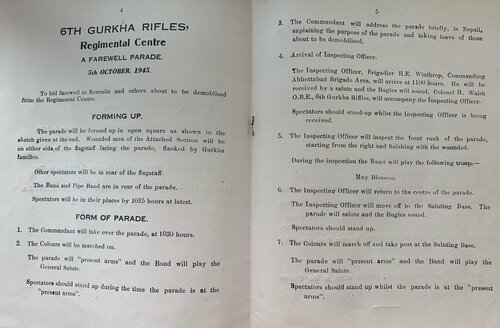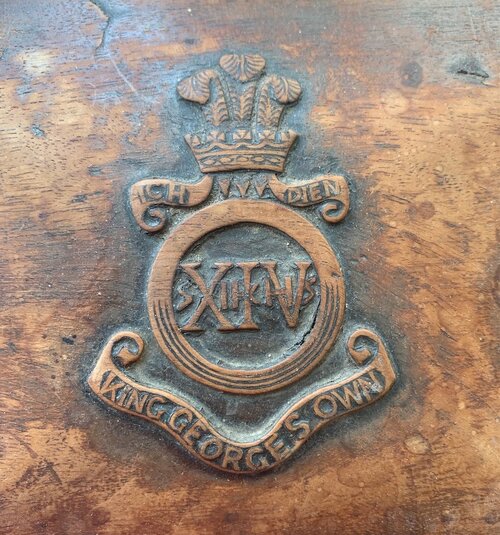Auction: 21002 - Orders, Decorations and Medals
Lot: 134
Sold by Order of a Direct Descendant
Eight: Brigadier H. E. Winthrop, Indian Army, who served in Kurdistan with the 11th Sikhs in 1923, before seeing wide-ranging service on the Staff, ending the Second World War as Commander of the Abbottabad Brigade, which saw him with some 500 Officers and 25,000 Other Ranks under his charge
British War and Victory Medals, with M.I.D. oak leaves (2nd Lt. H. E. Winthrop 14th K.G.O. Sikhs.), unofficially engraved naming; India General Service 1908-35, 2 clasps, Afghanistan N.W.F. 1919, North West Frontier 1930-31 (Capt. H. E. Winthrop 14th K.G.O. Sikhs.), unofficially engraved naming; General Service 1918-62, 1 clasp, Kurdistan (Capt. H. E. Winthrop.); 1939-45 Star; Burma Star; War Medal 1939-45; India Service Medal 1939-45, mounted court-style as worn by Spink & Son, King St., traces of lacquer, good very fine (8)
MIC (TNA WO 372/22/28365) confirms award of the General Service Medal only. 10 'Kurdistan' clasps issued to the Officers of the 1st Battalion, 11th Sikh (King George's Own) Regiment.
Hugh Erskine Winthrop was born in London on 26 October 1897 and was baptised at St Barnabas, Lambeth on 28 November 1897. A scion of the Wintrhop's of Groton Manor, Suffolk, young Hugh was educated at Christ's Hospital and University London, studying engineering. Like so many of his generation, the Great War intervened in his education and as a result he took the Army Entrant Examination, coming 40th out of 800 and earning a place at the Royal Military College, Wellington (his typed biography, refers). Commissioned into the Sikh's in April 1916, Winthrop service in India and towards the North West Frontier, but clearly out of the region which would have qualified him for further Medals.
Having served as Quartermaster, 1917-19, he was made an ADC to the Governor of the Punjab, 1919-21, before taking the appointment of Adjutant of the 11th Sikhs, with whom he saw active service in Kurdistan (Medal & clasp). Winthrop came to Staff College in 1928 and having qualified he became involved in the training and administration of the Indian Auxiliary and Territorial Units in the Southern Command. Upon the outbreak of the Second World War, he was made General Staff Officer in preparing the defences on the North West Frontier (ibid). Advanced Colonel in 1943 and moved to the Eastern Army, he was involved in the rearward security of communications and was placed on the Committee which reacted to the Bengal Famine that same year. Winthrop then went up to General HQ India, as Deputy Director of Military Training. It was clearly a successful posting, for he earned the personal thanks of Field Marshal Slim (ibid). In his own words:
'For my work in General HQ I was, in 1945, selected to command the Abbottabad Brigade. I had under my command some 500 Officers and 25,000 troops. Large numbers of these Officer and men were under training and I had a great deal of lecturing and public speaking to do. In 1946 this district became unsettled, and from July in that year until I left India in April 1947, I was continuously engaged, in conjunction with the Civil Authorities, in combatting riots and maintaining law and order. For my services in this connection I was twice officially thanked by the Government of the North West Frontier Province.'
These postings at Abbottabad saw him oversee a number of Gurkha Regimental Centres for new recruits. He took the 'Farewell Parade' for those being demobilised from the 6th Gurkha Rifles RC on 5 October 1945. Winthrop was the inspecting Officer and he was accompanied by Colonel H. Walsh of the 6th Gurkhas to inspect the troops.
With the impending partition, Winthrop left India as the expected advancement to Major-General he had been promised fell through. He emigrated to Canada in 1947, but returned in 1949 to be Secretary to the Aldershot Command Trust. Having been married with issue of a son, the Brigadier died at Hildenborough, Kent on 10 December 1963 and is buried in Tonbridge.
Sold together with a comprehensive archive, including carved wooden cigarette box with cap Badge of the 14th Sikhs to lid, a quantity of related photographs (both civil and military), including an image with Princess Margaret, menus and 6th Gurkha Regimental Centre Farewell Parade.
For his miniature dress Medals, please see Lot 343.
Subject to 20% VAT on Buyer’s Premium. For more information please view Terms and Conditions for Buyers.
Sold for
£600
Starting price
£240

